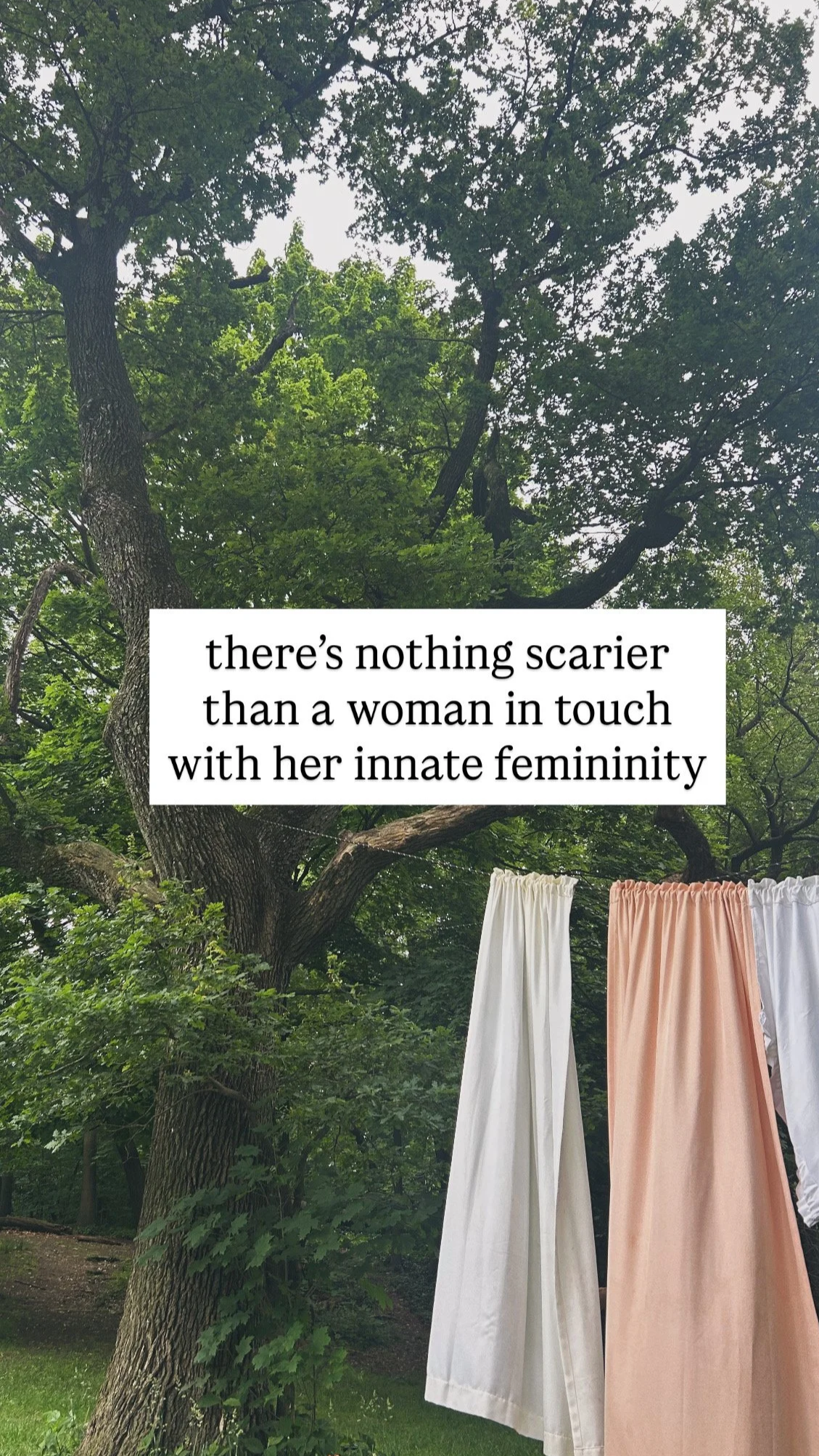the feminine urge to break the cycle
A modern WOMAN’s guide to overcoming generational trauma
Witches emerging from hibernation, pumpkins rotting on doorsteps, skeletons posing in the lawn. It’s spooky season, folks.
But even spookier than fake cobwebs acting as front porch decor is their seasonal appearances rooted in tradition that’s lost all meaning.
Standing behind tradition for tradition’s sake. Letting the candy corn go stale in a faux-crystal bowl, putting out little treats for children, and dressing up in silly costumes.
Mostly harmless fun with just a dusting of appropriation. Not to mention stereotypes that are reinforced year in and year out.
Take a look at witches – a staple when it comes to Halloween costumes. They’re impossible to separate from the holiday for their association to dark magic, representation of the supernatural, and the way they elicit fear.
Unfortunately, witches had to actually fight persecution. It took legitimate legal reform and abolition of laws to end the witch hunt. And by then, these women already inadvertently started to pass down their trauma and suffering to the generations of women to come.
There’s a wide range of situations that result in adverse physical or emotional outcomes, such as extreme racism or natural disasters, which can trigger generational trauma. The lasting impact of these traumatic experiences or suppressed tragedy, sometimes called intergenerational or transgenerational trauma, is passed down through biological, environmental, psychological, and social means.
“That’s how it’s always been” might be an accepted response when it comes to Halloween costumes and unappetizing yellow and orange candies, but might be worth questioning when it comes to today’s mental health crisis.
Trauma literally changes how genes work, otherwise known as epigenetic changes, and can be passed down to children that way. Some research suggests that it can be passed down through pregnancy if a fetus is exposed to certain stress chemicals in the womb.
So if your ancestors were persecuted in the witch trials, then you could still be feeling the effects from that level of prejudice.
The witch trials wouldn't be the last time empowered women were a threat to society, either. From earning the right to vote to fighting wage gaps and workplace harassment, women’s voices continue to be stifled, and the cycle of trauma lives on. These societal patterns inadvertently govern so much of women's lives and end up influencing familial expectations. It affects the way we were raised and in turn how we raise the next generation.
Ancestral trauma manifests itself through various mental health conditions including anxiety, depression, and post-traumatic stress disorder. Untreated, behaviors that enable and amplify these mental health conditions continue to shape family dynamics. Every now and then, someone is hit with the realization that the cycle needs to stop; that something needs to change.
Thankfully, a widely accessible tool is available when it comes to dealing with these issues: therapy. If you made it to this post, you might be considering this option for yourself or a loved one. Certain therapists at The Cozy Corner Counseling even specialize in trauma focused therapy. There are many factors to consider when looking into therapy however, from finding someone you are comfortable with to insurance coverage… And there are various resources out there to help. These sessions can help not only uncover what symptoms might be a result of intergenerational trauma, but reveal healthy coping mechanisms, and ultimately uncover ways to break the cycle moving forward.

